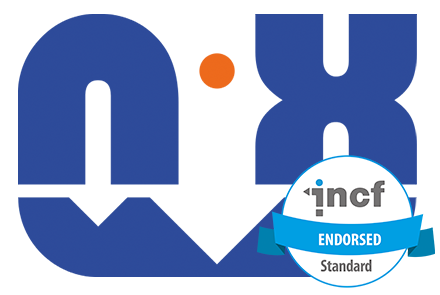Virtual INCF Neuroinformatics Training Weeks 2021
Dates: 23 August - 3 September 2021
If you have already registered for the courses and yet to make the payment, please go ahead and make the payment.
Introduction to Cloud Computing
Registration closed
Dates: 23 Aug - 27 Aug 2021 (5 day workshop )
Time: 12:00-14:30 EDT / 18:00-20:30 CEST
This workshop will introduce you to the core concepts of cloud computing and the foundational knowledge required for understanding how to leverage cloud computing in neuroscience research. Participants will receive hands-on experience with the leading cloud service Amazon Web Services, Google Cloud, and Microsoft Azure. In addition, the workshop will introduce participants to a selection of resources that will aid their implementation of cloud computing in their research and end with a capstone project. Learn more
Neurodata Without Borders (NWB) User Training
Registration closed
Dates: 25 Aug - 27 Aug 2021 (3 day workshop)
Time: 12:00-17:00 EDT / 18:00-23:00 CEST
The purpose of this workshop is to bring the experimental neurophysiology community together to further the adoption and development of NWB, the NWB software libraries, and scientific workflows that rely on NWB. Members of the community will exchange ideas and best practices for using NWB, share NWB-based tools, surface common needs, resolve coding issues, make feature requests, brainstorm about future collaboration, and make progress on current blockages. The event will also enable NWB developers and users to interact with each other to facilitate communication, gather requirements, and train users. Learn more
Integrated Storage and Management of Data & Metadata with NIX
Registration closed
Dates: 30 Aug - 1 Sep 2021 (3 day workshop)
Time: 11:00-15:00 EDT / 17:00 - 21:00 CEST
This workshop is intended for neuroscientists looking for a solution for integrated handling of data & metadata in a standard format. During this workshop, participants will be introduced to the NIX data model and format for (neuro)scientific data. We will introduce the basic concepts of the data model and library in lectures and exercises using data from real use cases. In interactive exercise sessions we will cover how to store various types of neuroscience data, together with their metadata and relations, tag points and regions, and automatically create fully labeled plots from the stored information. Users are also invited to present their data structures and start storing them in NIX. Finally, we will address the interoperability with the NEO objects for electrophysiological data and the Elephant toolbox. Learn more
DataJoint Elements Workflows for Neurophysiology
Registration closed
Dates: 30 Aug – 2 Sep 2021 (4 day workshop)
Time: 11.00-14.00 EDT / 17.00-20:00 CEST
This workshop will introduce you to building and operating computational data workflows— multistep methods for data collection and analysis—in neurophysiology experiments. We will use the DataJoint framework to organize shared data and automate analysis in Python. We will review prepared workflows from the DataJoint Elements projects: array ephys (e.g. Neuropixels 2.0), calcium imaging, and Miniscope imaging. Hands-on tutorials will be conducted using online tutorials with prepared sample data. Learn more
Introduction to Neuroscience Gateway (NSG) enabling large scale modeling and data processing on supercomputers
Registration closed
Date: 2 Sep 2021 (1 day workshop)
Time: 12:00-16:00 EDT / 18:00-22:00 CEST
This workshop is intended for computational, cognitive and experimental neuroscientists who use large scale modeling and data processing for their research. Computational neuroscientists who are building and using computational models of neurons and network of neurons, and cognitive neuroscientists who are processing EEG, fMRI and other types of data, as well as neuroscientist who are using machine learning for their research, will find this workshop of interest. Learn more
The Brain Imaging Data Structure (BIDS) carpentry workshop
Registration closed
Date: 2 Sep 2021
Time: 9.00 - 11.00 EDT / 15.00 - 17.00 CEST
Join this session to get the latest information on BIDS Apps and BIDS derivatives, as well as learn more about the BIDS and how to implement it. Learn more
EBRAINS-IBRO Master Class on Brain Atlasing and Simulation Services
Registration closed
Date: 2 Sep - 3 Sep 2021
Time: 03:00-07:15 EDT / 9:00-13:15 CEST
This workshop is intended for Senior PIs and will focus on the vast Brain Atlasing and Simulation Services available in EBRAINS. Learn more
NeuroML Tutorial
Registration closed
| Session 1 Dates: 23 Aug 2021 Time: 11:00-15:00 EDT / 17:00-21:00 CEST |
Session 2 Dates: 26 Aug 2021 Time: 09:00-13:00 CEST / 16:00-20:00 JST / 17:00-21:00 AEST |
This tutorial is intended for members of the computational modeling interested in learning more about how NeuroML and its related technologies facilitates the standardization, sharing, and collaborative development of models. Learn more
Brain Imaging Data Structure (BIDS) Tutorial
Registration closed
Date: 31 Aug 2021
Time: 13:15-14:15 EDT / 19:15-20:15 CEST
Join this session to get the latest information on BIDS Apps and BIDS derivatives, as well as learn more about the work the BIDS maintainers do to keep BIDS operating and moving forward. Learn more
Practical Training on Using NIDM Tools to Annotate General Tabular Data and BIDS Datasets
Registration closed
Dates: 1 Sep 2021
Time: 12:00-15:00 EDT / 18:00-21:00 CEST (3 hours)
This training session focuses on the latest developments in the NIDM community and how the tools can be used to conform to the FAIR principles. The training will begin with a brief introduction to the new graphical tools for managing your community’s terminologies and/or study data dictionaries and the associated interface to produce improved data dictionaries that incorporate concept-level annotations to improve search. We will use the ENIGMA schizophrenia working group as a running example to provide attendees with experience using the tools, understanding the outputs, and how they can be utilized in your own studies. The final section of the training focuses on your own datasets, where you will be able to use the techniques taught in the first part of the training and apply them to your specific use-cases with support from the trainers. Learn more










